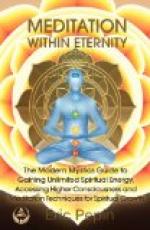His sense of union with and relationship to all living things was as much a part of him as the color of his eyes and hair; he did not have to remind himself of it, as a religious duty.
He experienced a keen joy in nature and in the innocent, childlike pleasures of everyday things, and at the same time possessed a splendid intellect.
All consciousness of sin or evil had been erased from his mind and actually had no place in his life.
ALFRED, LORD TENNYSON
In the case of Lord Tennyson, we have a definite recognition of two distinct states of consciousness, finally culminating in a clear experience of cosmic consciousness; this experience was so positive as to leave no doubt or indecision in his mind regarding the reality of the spiritual, and the illusory character of the external life.
In truth Tennyson had so fixed his consciousness in the spiritual rather than in the external, that he looked out from that inner self, as through the windows of a house; he was prepared, as he said, to believe that his body was but an imaginary symbol of himself, but nothing and no one could persuade him that the real Tennyson, the I am consciousness of being which was he, was other than spiritual, eternal, undying.
Like so many others, notably Whitman, who have realized a more or less full degree of cosmic consciousness, Tennyson was deeply and reverently religious, although not partisanly connected with church work. Tennyson’s early boyhood was marked by experiences which usually befall persons of the psychic temperament. As he himself described these states of consciousness, they were moments in which the ego transcended the limits of self consciousness and entered the limitless realm of spirit.
They do not tabulate with the ordinary trance condition of the spiritualistic medium, who subjects his own self consciousness to a “control,” although Tennyson always believed that the best of his writings were inspired by, and written under “the direct influence of higher intelligences, of whose presence he was distinctly conscious. He felt them near him and his mind was impressed by their ideas.”
The point which we emphasize is that these peculiar states of consciousness are not synonymous with the western idea of trance as seen in mediumship, although Tennyson uses the term “trance” in describing them.
He says:
“A kind of walking trance I have frequently had, quite up from boyhood, when I have been all alone. This has often come upon me through repeating my own name to myself silently until all at once, as it were, out of the intensity of the consciousness of individuality, the individuality itself seemed to dissolve and fade into boundless being.”
It is a fact that children of a peculiarly sensitive or psychic temperament seem to have strange ideas regarding the name by which they are called, and not infrequently become confused and filled with an inexplicable wonderment at the sound of their own name. This phenomenon is much less rare than is generally known.




